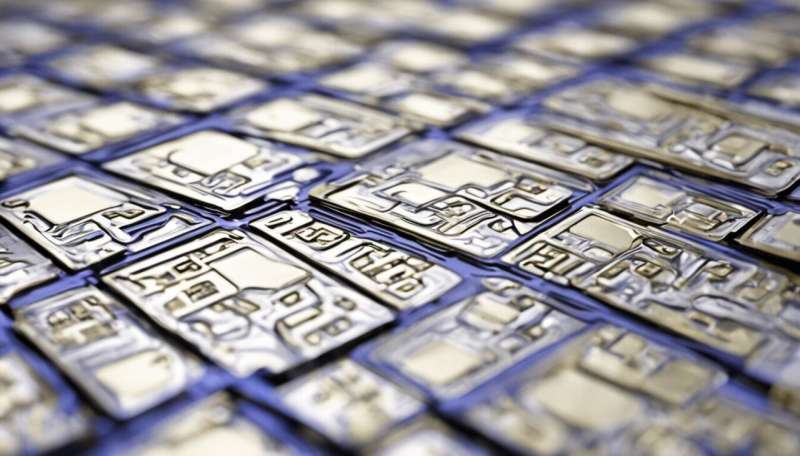
Anthony (a friend) called a few weeks ago, deeply worried.
The coins would be stored in a digital "wallet", an application similar to a private bank account, accessible only by a password or "private key".
A wallet can be virtual or physical, on a small portable device similar in appearance to a USB stick or small phone. Physical wallets are the safest because they can be unplugged from the internet when not being used, minimizing the risk of being hacked.
Before exchanges emerged, trading involved owners selling directly to buyers via online forums, transferring coins from one wallet to another like any electronic funds transfer.
Decentralized vs. centralized
All this, however, required some technical knowledge.
Cryptocurrency exchanges reduced the need for such knowledge. They made it easy for less tech-savvy investors to get into the market, in the same way web browsers have made it easy to navigate the Internet.

Two types of exchanges emerged: decentralized (DEX) and centralized (CEX).
Decentralized exchanges are essentially online platforms to connect the orders of buyers and sellers of cryptocurrencies. They are just there to facilitate trading. You still need to hold cryptocurrencies in your own wallet (known as "self-custody").
Centralized exchanges go much further, eliminating wallets by offering a one-stop-shop service. They aren't just an intermediary between buyers and sellers. Rather than self-custody, they act as custodian, holding cryptocurrency on customers' behalf.
Exchange, broker, bank
Centralized exchanges have proven most popular. Seven of the world's ten biggest crypto exchanges by trading volume are centralized.
But what customers gain in simplicity they lose in control.
You don't give your money to a stock exchange, for example. You trade through a broker, who uses your trading account when you buy and deposits money back into your account when you sell.
A CEX, on the other hand, acts as an exchange, a brokerage (taking customers' fiat money and converting it into crypto or vice versa), and as a bank (holding customer's crypto assets as custodian).
This is why FTX was holding cash and crypto assets worth US$10-50 billion. It also acted like a bank by borrowing and lending cryptocurrencies—though without customers' knowledge or agreement, and without any of the regulatory accountability imposed on banks.
Holding both wallets and keys, founder-owner Sam Bankman-Fried "borrowed" his customers' funds to prop up his other businesses. Customers realized too late they had little control. When it ran into trouble, FTX simply stopped letting customers withdraw their assets.
The power of marketing
Like stockbrokers, crypto exchanges make their money by charging a commission on every trade. They are therefore motivated to increase trading volumes.
FTX did this most through celebrity and sports marketing. Since it was founded in 2019 it has spent an estimated US$375 million on advertising and endorsements, including buying the naming rights to the stadium used by the Miami Heat basketball team.
Such marketing has helped to create the illusion that FTX and other exchanges were as safe as mainstream institutions. Without such marketing, it's debatable the value of the cryptocurrency market would have risen from US$10 billion in 2014 to US$876 billion in 2022.
Not your key, not your coins
There's an adage among crypto investors: "Not your key, not your coins, it's that simple."
What this means is that your crypto isn't safe unless you have self-custody, storing your own coins in your own wallet to which you alone control the private key.
The bottom line: crypto exchanges are not like stock exchanges, and CEXs are not safe. If the worst eventuates, whether it be an exchange collapse or cyber attack, you risk losing everything.
All investments carry risks, and the unregulated crypto market carries more risk than most. So follow three golden rules.
First, do some homework. Understand the process of trading crypto. Learn how to use a self-custody wallet. Until governments regulate crypto markets, especially exchanges, you're largely on your own.
Second, if you're going to use an exchange, a DEX is more secure. There is no evidence to date that any DEX has been hacked.
Lastly, in this world of volatility, only risk what you can afford to lose.
This article is republished from The Conversation under a Creative Commons license. Read the original article.![]()
Original Text (This is the original text for your reference.)

Anthony (a friend) called a few weeks ago, deeply worried.
The coins would be stored in a digital "wallet", an application similar to a private bank account, accessible only by a password or "private key".
A wallet can be virtual or physical, on a small portable device similar in appearance to a USB stick or small phone. Physical wallets are the safest because they can be unplugged from the internet when not being used, minimizing the risk of being hacked.
Before exchanges emerged, trading involved owners selling directly to buyers via online forums, transferring coins from one wallet to another like any electronic funds transfer.
Decentralized vs. centralized
All this, however, required some technical knowledge.
Cryptocurrency exchanges reduced the need for such knowledge. They made it easy for less tech-savvy investors to get into the market, in the same way web browsers have made it easy to navigate the Internet.

Two types of exchanges emerged: decentralized (DEX) and centralized (CEX).
Decentralized exchanges are essentially online platforms to connect the orders of buyers and sellers of cryptocurrencies. They are just there to facilitate trading. You still need to hold cryptocurrencies in your own wallet (known as "self-custody").
Centralized exchanges go much further, eliminating wallets by offering a one-stop-shop service. They aren't just an intermediary between buyers and sellers. Rather than self-custody, they act as custodian, holding cryptocurrency on customers' behalf.
Exchange, broker, bank
Centralized exchanges have proven most popular. Seven of the world's ten biggest crypto exchanges by trading volume are centralized.
But what customers gain in simplicity they lose in control.
You don't give your money to a stock exchange, for example. You trade through a broker, who uses your trading account when you buy and deposits money back into your account when you sell.
A CEX, on the other hand, acts as an exchange, a brokerage (taking customers' fiat money and converting it into crypto or vice versa), and as a bank (holding customer's crypto assets as custodian).
This is why FTX was holding cash and crypto assets worth US$10-50 billion. It also acted like a bank by borrowing and lending cryptocurrencies—though without customers' knowledge or agreement, and without any of the regulatory accountability imposed on banks.
Holding both wallets and keys, founder-owner Sam Bankman-Fried "borrowed" his customers' funds to prop up his other businesses. Customers realized too late they had little control. When it ran into trouble, FTX simply stopped letting customers withdraw their assets.
The power of marketing
Like stockbrokers, crypto exchanges make their money by charging a commission on every trade. They are therefore motivated to increase trading volumes.
FTX did this most through celebrity and sports marketing. Since it was founded in 2019 it has spent an estimated US$375 million on advertising and endorsements, including buying the naming rights to the stadium used by the Miami Heat basketball team.
Such marketing has helped to create the illusion that FTX and other exchanges were as safe as mainstream institutions. Without such marketing, it's debatable the value of the cryptocurrency market would have risen from US$10 billion in 2014 to US$876 billion in 2022.
Not your key, not your coins
There's an adage among crypto investors: "Not your key, not your coins, it's that simple."
What this means is that your crypto isn't safe unless you have self-custody, storing your own coins in your own wallet to which you alone control the private key.
The bottom line: crypto exchanges are not like stock exchanges, and CEXs are not safe. If the worst eventuates, whether it be an exchange collapse or cyber attack, you risk losing everything.
All investments carry risks, and the unregulated crypto market carries more risk than most. So follow three golden rules.
First, do some homework. Understand the process of trading crypto. Learn how to use a self-custody wallet. Until governments regulate crypto markets, especially exchanges, you're largely on your own.
Second, if you're going to use an exchange, a DEX is more secure. There is no evidence to date that any DEX has been hacked.
Lastly, in this world of volatility, only risk what you can afford to lose.
This article is republished from The Conversation under a Creative Commons license. Read the original article.![]()








 User Center
User Center My Training Class
My Training Class Feedback
Feedback












Comments
Something to say?
Log in or Sign up for free